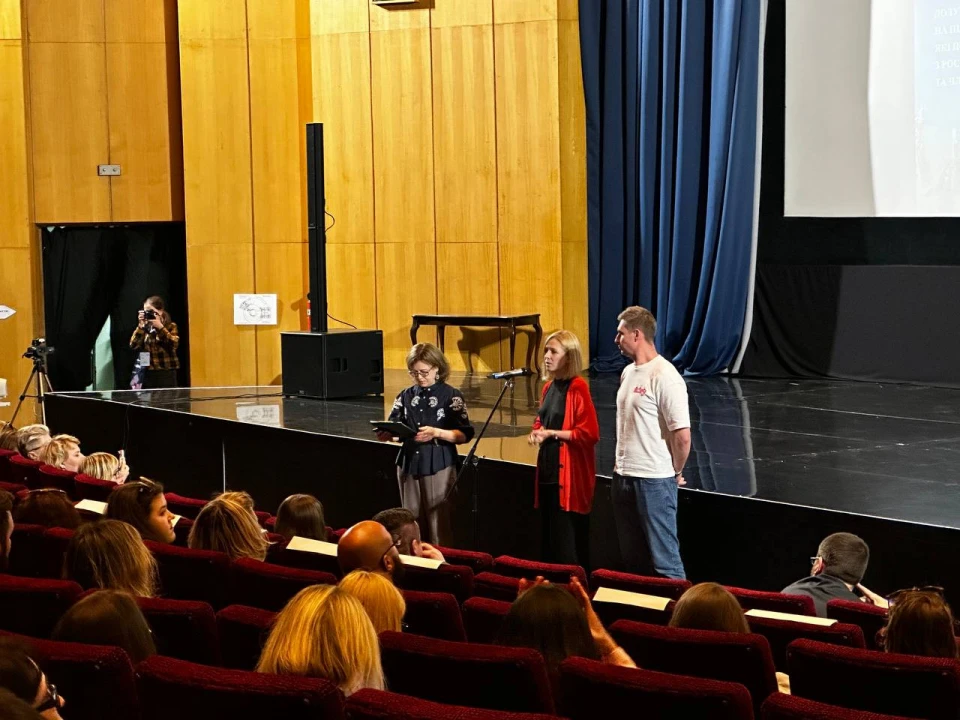The National Museum of the History of Ukraine in the Second World War hosted a pre-premiere screening of the documentary People of the Colour of Freedom. The film tells the story of the non-violent resistance of Ukrainians in the temporarily occupied territories from 2014 to the present day.
This was reported by Espresso correspondent Diana Polyova.
The film was created by the creative team of the NGO ‘Tuteshni’ with the assistance of the Special Operations Forces of the Armed Forces of Ukraine and the support of the International Renaissance Foundation.
According to Anna Slyusarenko, screenwriter, producer and head of the NGO ‘Tuteshni’, the work on the film lasted for more than a year. The team was looking for new ways to safely and honestly give a voice to those living under occupation – people who cannot speak freely but remain Ukrainians in their daily silence of resistance.
“It is important for us to build bridges between those who remain under occupation and those who live in the government-controlled territory. We want these people to know that we see them, hear them and are ready to support them,” said Slyusarenko.

Photo: Diana Polyova
The film uses personal stories, as well as voice messages and letters received from residents of the occupied territories who decided to talk about their lives despite the danger. One of the protagonists is Lyudmila Gusienova, who spent more than three years in captivity in Donetsk for her pro-Ukrainian stance.
The screening ended with a fundraiser to support civilian women who have returned from Russian captivity – the organisers called for help with their adaptation and basic needs.
People’s Deputy Mykola Kniazhytskyi, who also attended the screening, noted that this film is not about territories, but about people.
“We often talk about which territories should return to Ukraine, but rarely about the people who live there. This film is about their struggle, about their small homelands that are part of Europe,” he stressed.
The authors call the creation and screening of the film a kind of cultural manifesto. They plan to organise wide screenings in Ukraine and abroad, including with the participation of diplomatic missions, and will also look for ways to bring the film to the occupied territories so that people there know that they are not forgotten.
Source: Espresso

